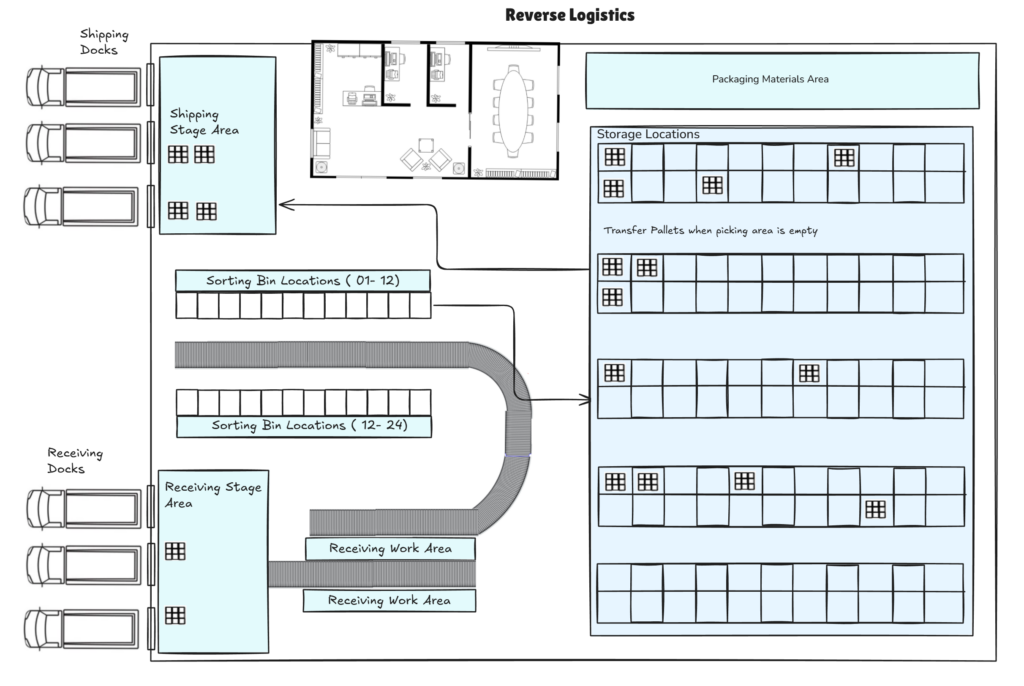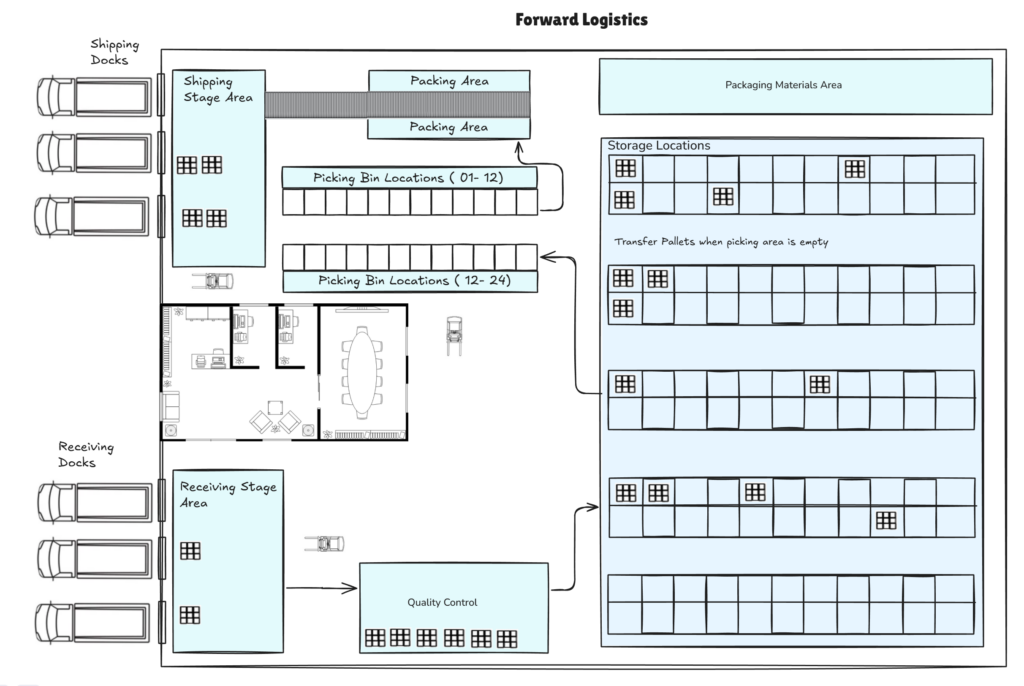Logistics
- Home
- Logistics
Overcoming Logistics Industry Challenges with Odoo

The logistics industry is the backbone of global trade, ensuring that goods flow efficiently across borders, supply chains, and warehouses. However, it faces numerous challenges—from managing complex transportation networks to controlling costs and ensuring timely deliveries. In this dynamic environment, staying competitive requires streamlined processes, real-time data, and seamless integration between various systems.
Odoo, an all-in-one ERP solution, provides logistics businesses with the tools to overcome these challenges and improve overall operational efficiency. Let’s explore the main hurdles in the logistics industry and how Odoo offers solutions that enhance productivity and customer satisfaction.
Challenges in the Logistics Industry
1. Transportation Management
Managing a fleet, optimizing delivery routes, and ensuring timely shipments are some of the biggest challenges. Logistics companies face rising fuel costs, vehicle maintenance issues, and unpredictable traffic that affect efficiency.
2. Inventory Management
Managing inventory levels across multiple warehouses and distribution centers requires real-time tracking and forecasting. Overstocking and stockouts are risks that can lead to unnecessary costs or missed opportunities.
3. Real-Time Data Access
Logistics operations rely heavily on timely and accurate information. Without a unified platform, businesses often deal with data silos, leading to delays, inefficiencies, and poor decision-making.
4. Supply Chain Visibility
Logistics companies need full visibility into their supply chain to track shipments, manage suppliers, and ensure on-time deliveries. Without transparency, delays or errors can lead to customer dissatisfaction and increased costs.
5. Regulatory Compliance
The logistics industry is subject to a variety of regulations, including those related to customs, transportation safety, and environmental standards. Managing compliance across multiple regions and jurisdictions can be overwhelming.
6. Cost Control
With increasing fuel prices, labor costs, and maintenance expenses, logistics companies need to constantly monitor and manage costs to maintain profitability.
How Odoo Solves Logistics Challenges


Odoo’s comprehensive suite of tools is designed to integrate all aspects of logistics, from transportation to inventory and supply chain management. Here’s how Odoo can help businesses in the logistics industry address their key challenges:
1. Efficient Transportation Management
Odoo’s Fleet Management module helps logistics companies manage their fleet more efficiently by providing:
- Real-time tracking of vehicles and shipments.
- Automated route optimization to reduce fuel costs and delivery times.
- Maintenance scheduling to avoid unexpected breakdowns.
2. Streamlined Inventory and Warehouse Management
The Inventory module ensures real-time updates on stock levels, locations, and product movements. With Odoo, logistics companies can:
- Automate stock replenishment and transfers.
- Integrate with suppliers for smoother procurement processes.
- Track inventory across multiple warehouses and distribution centers.
3. Real-Time Data and Insights
Odoo offers a centralized dashboard that provides real-time data across all operations, including transport, inventory, and shipments. This unified system allows for quick decision-making, and provides key performance indicators (KPIs) such as delivery times, stock levels, and order statuses.
4. Enhanced Supply Chain Visibility
Odoo’s Supply Chain and Procurement modules offer end-to-end visibility into the movement of goods. Logistics managers can track shipments, monitor supplier performance, and manage order statuses across the entire supply chain.
5. Compliance Management
Odoo simplifies compliance management by integrating features like customs documentation, invoicing, and transportation safety tracking. This helps logistics companies ensure that they meet regulatory requirements across different regions without manually managing complex paperwork.
6. Cost Control and Optimization
With Odoo’s Accounting module, logistics companies can track and manage operational costs, including fuel, labor, and vehicle maintenance. The system provides detailed reports, helping businesses identify areas for cost reduction and efficiency improvement.
Success Stories with Odoo
- Global Freight Company: Improved fleet management efficiency by 30% using Odoo’s route optimization and real-time tracking features.
- Warehouse Management Firm: Reduced stock discrepancies by 25% with Odoo’s automated inventory management system.
- Regional Transport Provider: Cut operational costs by 20% through Odoo’s comprehensive accounting and cost-tracking tools.
Why Logistics Companies Choose Odoo
Odoo’s all-in-one ERP solution helps logistics companies:
- Improve operational efficiency and reduce costs.
- Gain real-time visibility and control across supply chains.
- Ensure compliance and manage regulations effectively.
- Enhance customer satisfaction through faster, more accurate deliveries.
By integrating all these functions into one platform, Odoo helps businesses optimize logistics processes and scale as they grow.
Transform Your Logistics Operations with Odoo
The logistics industry faces a complex set of challenges that require cutting-edge solutions. With Odoo’s integrated modules, logistics companies can streamline operations, reduce costs, and provide better service to customers.
Ready to take your logistics operations to the next level? Let Odoo be your partner in driving efficiency and growth.







